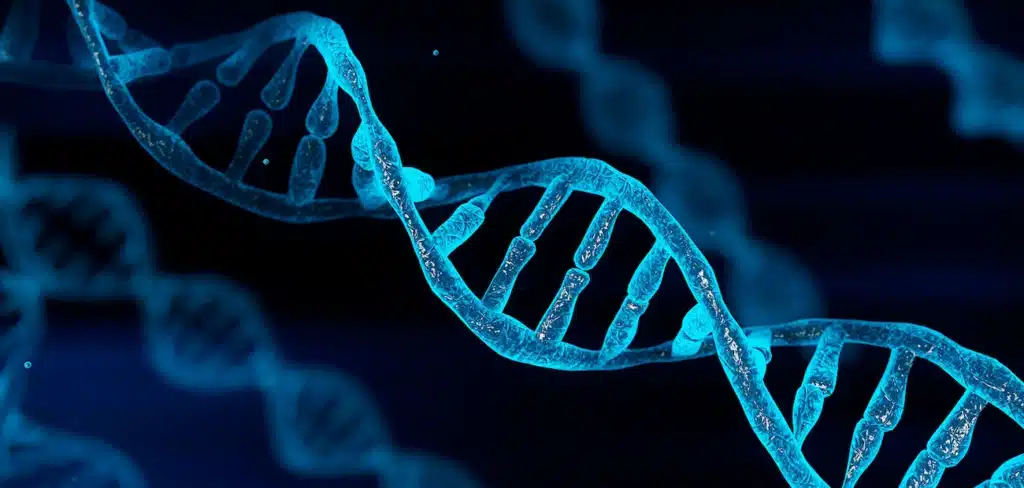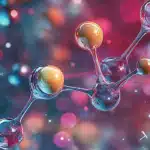
The 12 Hallmarks of Aging – What They Are & Why They Matter
Aging is a complex biological process that affects every cell in our body. For decades, scientists have been attempting to understand what causes aging and how we might slow it down. One of the most significant breakthroughs in longevity research is the identification of The 12 Hallmarks of Aging that are now understood as the key mechanisms of aging and its associated diseases.
Understanding these 12 Hallmarks of Aging not only helps us understand why we age, but also provides potential biohacking strategies to slow the process. Here’s a breakdown of what they are and why they’re important.
1. Genomic Instability
Our DNA is constantly exposed to damage from environmental factors such as UV radiation, toxins and metabolic byproducts. Over time, this damage accumulates and leads to mutations and cellular dysfunction. This contributes to aging and diseases such as cancer.
2. Telomere Attrition
Telomeres are the protective caps at the ends of our chromosomes. Every time a cell divides, telomeres shorten. When they become too short, cells lose their ability to function and enter senescence (a non-functional state). Maintaining telomere length through healthy lifestyle habits may help support longevity.
Another way to protect your telomeres and promote DNA repair is to activate Sirtuin 6. This can be done by supplementing with SIRT6 Activator® from DoNotAge.org. Use code KAJSA to get 10% off your order at DoNotAge.org.
3. Epigenetic Alterations
Our genes don’t operate in isolation. Instead they are influenced by lifestyle factors like diet, stress, and environmental toxins. Epigenetic changes can switch genes on or off, impacting cellular function and contributing to aging. Reversing harmful epigenetic changes through biohacking and lifestyle interventions is a growing area of research.
4. Loss of Proteostasis
Proteostasis means the body’s ability to maintain properly folded and functioning proteins. As we age, proteins misfold and accumulate. This leads to neurodegenerative diseases like Alzheimer’s and Parkinson’s. Autophagy (cellular cleanup processes) and proper nutrition can help maintain proteostasis. Autophagy is stimulated by intermittent fasting.
You can boost autophagy by supplementing with Spermidine. Get your Pure Spermidine at DoNotAge.org. Use code KAJSA to get 10% off your entire order.
5. Deregulated Nutrient Sensing
Our cells rely on nutrient-sensing pathways to regulate metabolism and energy use. With aging, these pathways become less efficient which increase the risk of insulin resistance, obesity, and metabolic dysfunction. Fasting and calorie restriction have been shown to optimize these pathways for longevity.

6. Mitochondrial Dysfunction
Mitochondria, also known as the “powerhouses” of the cell, produce energy. With age, their efficiency declines which leads to fatigue, oxidative stress and a higher risk of age-related diseases. Exercise, red light therapy, and targeted supplements like CoQ10 can support mitochondrial health.
7. Cellular Senescence
Cells that stop dividing but refuse to die (senescent cells) accumulate in tissues which releases inflammatory signals that contribute to aging. Removing these “zombie cells” through senolytic compounds and intermittent fasting may help slow down aging.

Track Your Biological Age with GlycanAge
Want to know how well you’re aging at a cellular level? GlycanAge offers a science-backed biological age test that analyzes your immune system’s health through glycans – key biomarkers of aging and inflammation. By understanding your biological age, you can take targeted steps to slow the aging process and optimize your health.
GlycanAge’s Biological Age Test is backed by science and trusted by longevity experts. The test result provides insights beyond traditional health markers. You also get a free consultation with one of GlycanAge’s specialists who will help you review your results. You will also get suggestions on lifestyle changes that can help you decrease your biological age.
🔗 Get 10% Off with Code: HACKS4
8. Stem Cell Exhaustion
Stem cells are responsible for regenerating tissues, but their function declines with age. This leads to slower healing, tissue degeneration and immune dysfunction. Things like proper sleep, exercise, and certain regenerative therapies may help maintain stem cell function.
9. Altered Intercellular Communication
Cells communicate with each other to coordinate repair and immune responses. With aging, this communication becomes dysfunctional and this leads to chronic inflammation, weakened immunity, and tissue damage. Supporting cellular communication through anti-inflammatory diets and stress management can improve overall health.
10. Chronic Inflammation (Inflammaging)
Low-grade, persistent inflammation is a hallmark of aging and is linked to numerous diseases like heart disease to cognitive decline. Anti-inflammatory diets, exercise, and stress management are key to reducing inflammaging.
11. Dysbiosis & Gut Microbiome Imbalance
Our gut microbiome plays an important role in digestion, immunity and even brain function. With aging, the balance of good and bad bacteria shifts and this contribute to weakened immunity and inflammation. A diverse, fiber-rich diet and probiotics can help maintain a healthy gut microbiome.
12. Disabled Macroautophagy
Autophagy is the body’s built-in recycling system, breaking down and removing damaged cells and proteins. As we age, this process declines, leading to the accumulation of waste and increased disease risk. Fasting, exercise, and certain polyphenols (like resveratrol) can activate autophagy and promote cellular health.
What This Means for Longevity
Aging is not just an inevitable decline. It’s actually a process we can influence. By understanding and addressing these 12 Hallmarks of Aging, we can take proactive steps to optimize our health, extend lifespan, and improve overall well-being. This is something I am doing and I hope you do the same!



